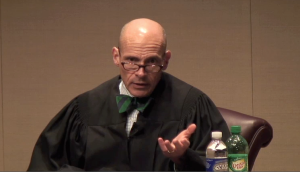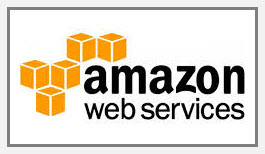by John Patzakis
Tiffany Parker and Sheniya Brown of Wilmington, Delaware, exchanged heated messages on Facebook over a mutual love interest, and the conflict escalated considerably when they subsequently encountered each other in public and became embroiled in a physical altercation. Bystanders eventually separated the two, but the fight resumed when Brown returned with a knife. Shortly thereafter, officers from the Wilmington Police Department again separated the women and ultimately Parker was charged with second-degree assault and making terrorist threats. Parker claimed self-defense.
After the fight, Parker again took to Facebook to taunt Brown, stating:
“bet tht [sic] bitch didnt [sic] think [I] was going to see her ass…bet she wont [sic] inbox me no more, #caughtthatbitch….[ctfu]..this girl is crazy…..first of all she hit me first…[I] told you go head [sic] and you inboxed [sic] me back still being disrespectful…[I] told you say no more [sic]…[I] seen [sic] you today…we said our words you put your hands on me…[I] hit you back ..WE [sic]…”
At trial, the State introduced Parker’s post-altercation Facebook posts to tie her to the incident and discredit her self-defense claim. The State introduced her Facebook posts, which included her picture, the name “Tiffanni Parker,” and a time stamp for each entry. The State relied on circumstantial evidence, and the victim’s direct testimony to authenticate the Facebook evidence.
The jury convicted Parker of second degree assault, and she appealed, claiming that the Stated failed to properly authenticate the Facebook postings. Last month, the Delaware Appellate court affirmed the conviction (Parker v. State, — A.3d –, 2014 WL 621289 (2014)), framing the issue at hand as follows:
On many sites such as Facebook or Twitter, a user will post content—which can include text, pictures, or videos—to that user’s profile page delivering it to the author’s subscribers. Often these posts will include relevant evidence for a trial, including party admissions, inculpatory or exculpatory photos, or online communication between users. But there is a genuine concern that such evidence could be faked or forged, leading some courts to impose a high bar for the admissibility of such social media evidence. Other courts have applied a more traditional standard, “determining the admissibility of social media evidence based on whether there was sufficient evidence of authenticity for a reasonable jury to conclude that the evidence was authentic.” This approach recognizes that the risk of forgery exists with any evidence and the rules provide for the jury to ultimately resolve issues of fact.
The Delaware court followed the case of Tienda v. State 358 S.W.3d 633 (Tex.Crim.App.2012), which applies the “traditional standard” noted by the Parker court in the above quote. In Tienda, the court upheld the admission of social media postings over the defendant’s objection. The prosecution set the foundation for the evidence through various unique metadata and other circumstantial evidence. The Texas appellate court determined that “this is ample circumstantial evidence—taken as a whole with all of the individual, particular details considered in combination—to support a finding that the MySpace pages belonged to the appellant and that he created and maintained them.”
The Parker court ultimately concluded that social media evidence was no different from any other evidence and that it was thus subject to the same authentication test as any other exhibit. Applying the test set forth in Tienda, which has become the majority view in the U.S., the court concluded that the Facebook messages were properly authenticated based upon the victim’s testimony, and circumstantial evidence in the form of metadata, including date stamps, and user account names.
While the prosecution in the Parker case achieved a favorable result, it faced a concerted challenge on the authenticity of the evidence, and as we have seen in other cases, relying on simple printouts of social media site pages is a very risky value proposition. This highlights the importance of utilizing best practices technology such as X1 Social Discovery to ensure all supporting metadata and other key circumstantial evidence is properly and comprehensively collected to ensure proper authentication of social media and other website evidence.





